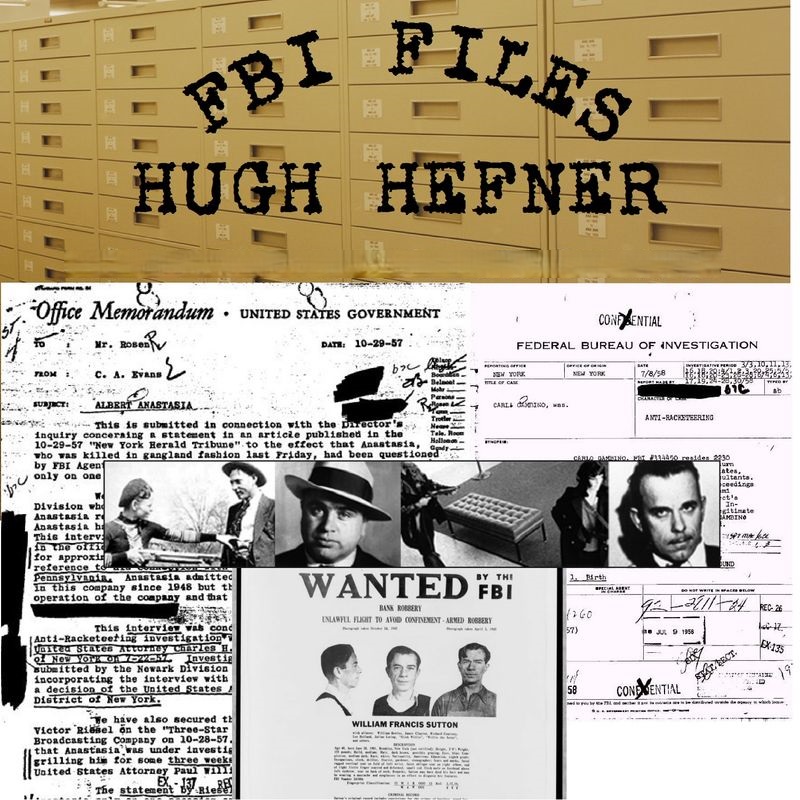
Hugh Hefner – Playboy Magazine FBI Files
$4.50
Description
The FBI’s headquarters in Washington, D.C. produced 210 pages of documents related to Hugh Hefner, Playboy magazine, and Playboy Enterprises. These records span from 1955 to 1980. The FBI described the magazine as being engaged in a “campaign of snide innuendoes” against them, sometimes directly criticizing both the agency and its director. The files also reveal the FBI’s perspective on the shifting American culture of the 1960s.
These documents include information about Hefner’s 1963 arrest for obscenity, stemming from photographs of Jane Mansfield published in the magazine. They also detail the FBI’s responses to various interviews featured in Playboy, including those with Martin Luther King Jr., Art Buchwald, Melvin Belli, Fidel Castro, Jim Garrison, and Eldridge Cleaver. In particular, the FBI characterized the January 1965 interview with Martin Luther King as “typical King double talk,” labeling it a “classical example of the unbounded duplicity of this false proph
The FBI’s Surveillance of Hugh Hefner and Playboy
- 1955: Earliest date of FBI files regarding Hugh Hefner, Playboy Magazine, and Playboy Enterprises. This suggests the FBI began monitoring these entities around the magazine’s inception.
- 1955-1980: FBI actively collects information on Hugh Hefner and Playboy, documenting both Hefner’s actions and the magazine’s content. The files cover a 25-year period of intensive monitoring.
- 1960s: FBI documents its reactions to American cultural changes. This is significant as it highlights the FBI’s interest in Playboy Magazine in the context of broader social shifts.
- 1963: Hugh Hefner is arrested for obscenity. This incident involves photographs of Jane Mansfield published in the magazine and represents an effort to legally constrain the magazine’s content.
- During the 1960s – 1970s: Playboy Magazine publishes several interviews that draw the attention of the FBI, indicating the FBI’s interest in Playboy as a platform for controversial public figures and ideas. These interviews include:
- Martin Luther King Jr. (January 1965)
- Art Buchwald
- Melvin Belli
- Fidel Castro
- Jim Garrison
- Eldridge Cleaver
- Throughout the entire period of monitoring (1955-1980): The FBI develops a negative view of Playboy Magazine, characterizing it as engaging in “snide innuendoes” and expressing “outright criticism” of the FBI and its director. This highlights the tension between the magazine and the agency.
- 1980: Latest date mentioned in the files, suggesting the FBI’s active monitoring period concluded around this time.
Cast of Characters
- Hugh Hefner: Founder and editor-in-chief of Playboy Magazine. The FBI files indicate he was a central figure of concern to the agency, focusing on both his business and personal conduct. He was seen as a figurehead for a shifting cultural and social landscape that the FBI found troubling.
- Jane Mansfield: Actress and model whose photographs published in Playboy led to Hefner’s 1963 obscenity arrest, suggesting she was a figure used by Playboy, and therefore monitored, by the FBI.
- Martin Luther King Jr.: Civil Rights leader. The FBI’s negative characterization of his 1965 Playboy interview highlights the agency’s distrust of him and the era’s social movements he represented. They viewed him as a “false prophet” engaged in “double talk.”
- Art Buchwald: Humorist and political commentator. His interview in Playboy drew FBI attention, further suggesting that Playboy was being monitored for the ideas and opinions it offered platform to.
- Melvin Belli: Attorney known for his involvement in high-profile cases. Similar to Buchwald, the inclusion of his interview suggests the FBI monitored the publication for both its interviews and interviewees.
- Fidel Castro: Communist revolutionary and leader of Cuba. The FBI’s interest in his interview in Playboy underscores concerns about the magazine’s engagement with figures viewed as politically controversial by the American government.
- Jim Garrison: District Attorney of New Orleans known for his investigation into the assassination of John F. Kennedy. His interview in Playboy made him a point of interest to the FBI, due to his pursuit of a controversial case that they clearly monitored.
- Eldridge Cleaver: Writer and prominent member of the Black Panther Party. His interview represents the FBI’s deep interest in the radical and often controversial people and movements featured in the magazine.
Related products
-
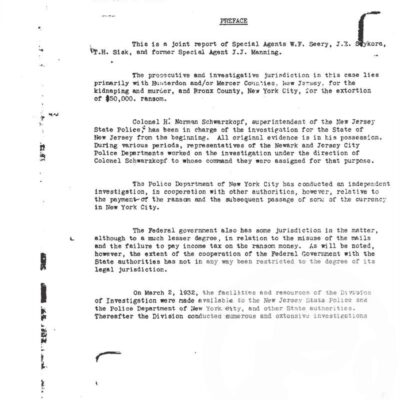
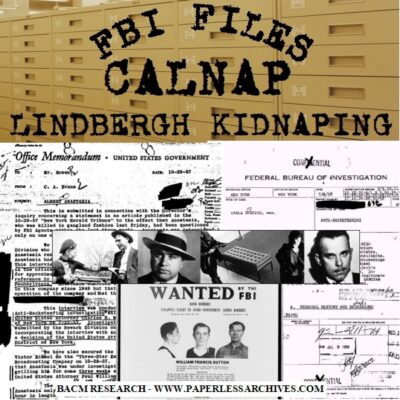
FBI Files: Charles Lindbergh Baby Kidnapping Case
$19.50 Add to Cart -
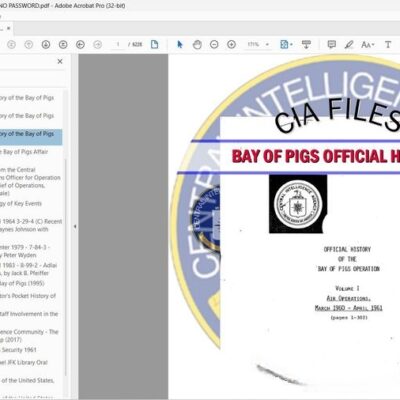
Bay of Pigs CIA Official History of the Bay of Pigs Operation
$19.50 Add to Cart -

John F. Kennedy Assassination Dallas Police Department Files
$19.50 Add to Cart -
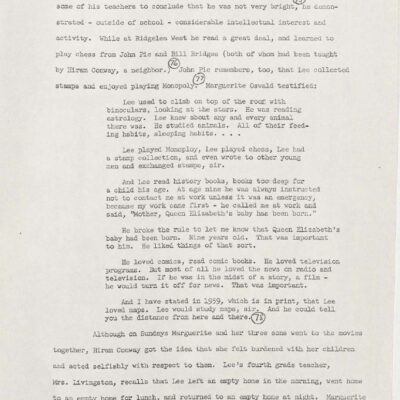
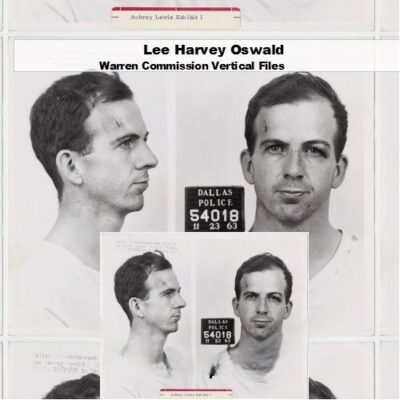
John F. Kennedy Assassination: Lee Harvey Oswald Warren Commission Vertical File
$19.50 Add to Cart